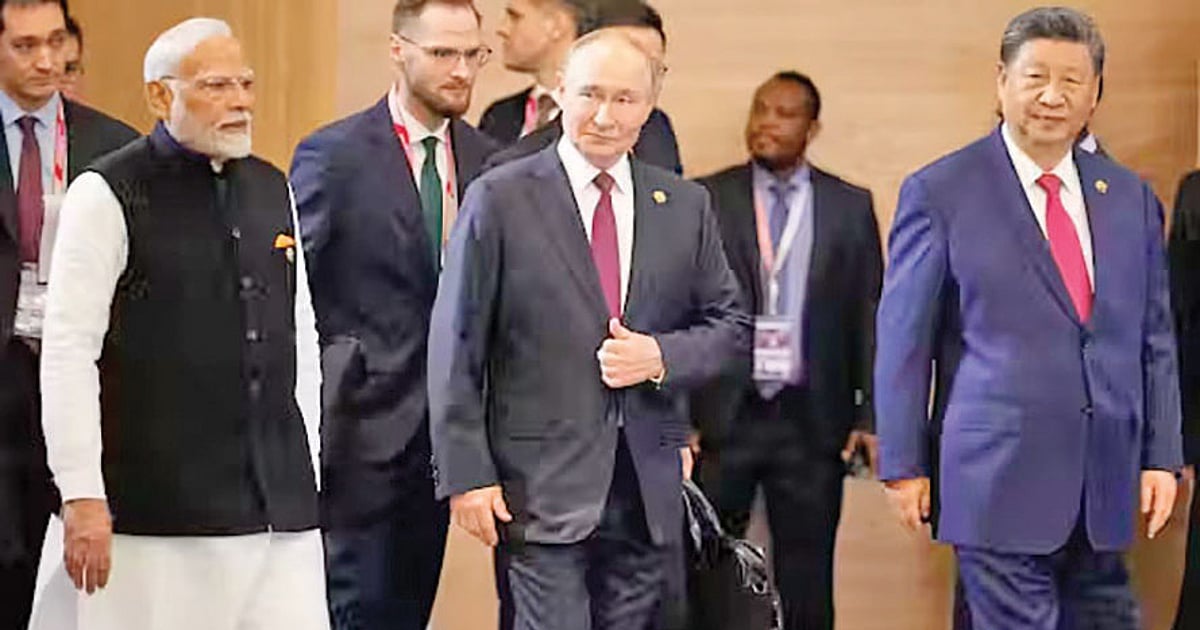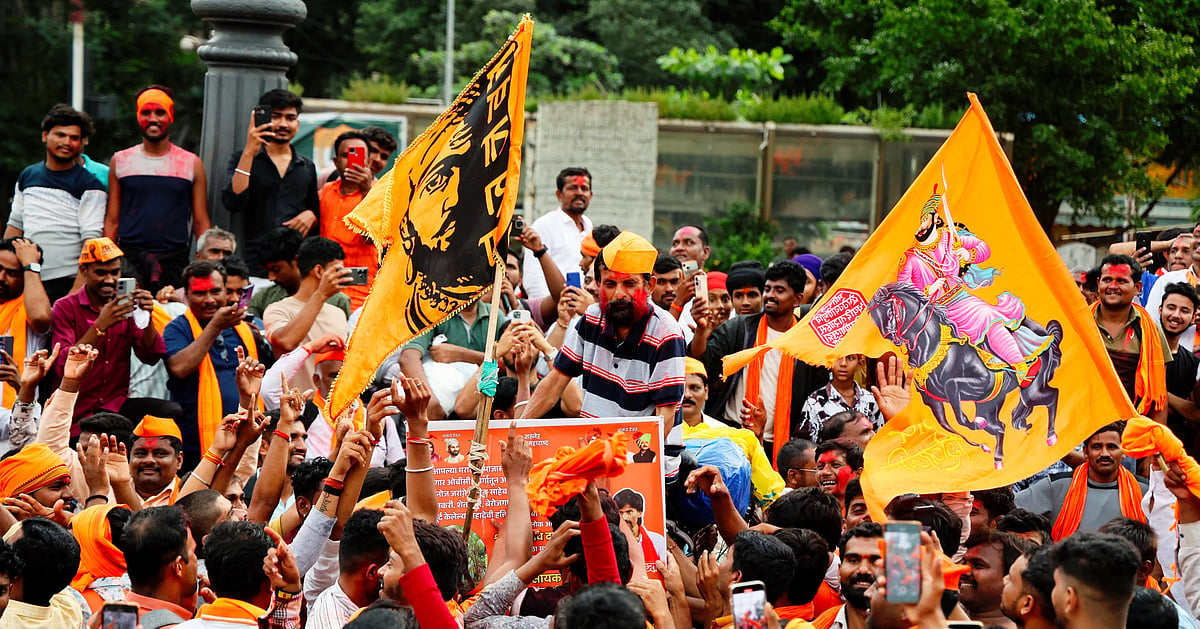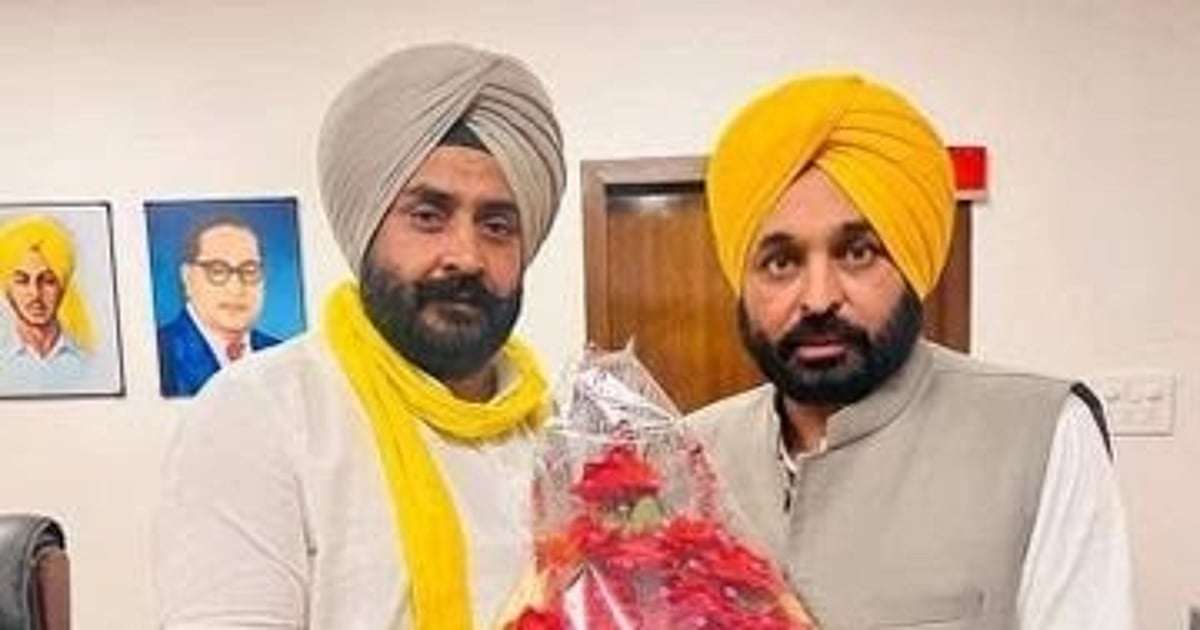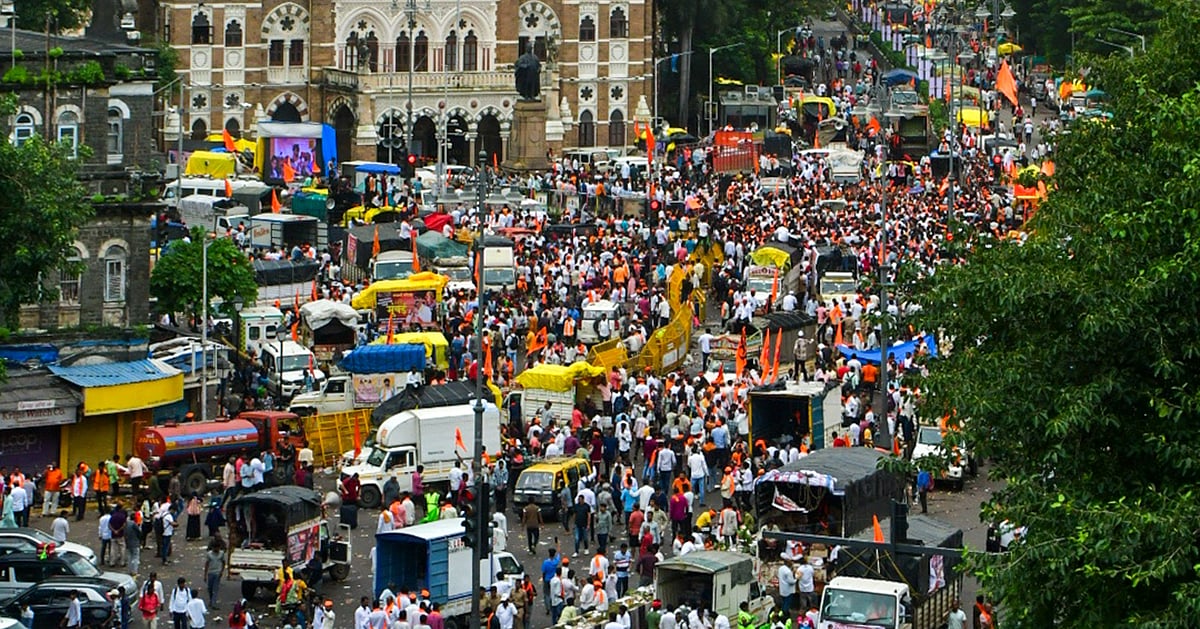National News
India’s desperate discovery for new friends

Prime Minister Narendra Modi is in Tianjin for the Shanghai Cooperation Organization (SCO) summit (31 August -September), which is the first visit to China in more than seven years. For Beijing, hosting the largest SCO summit in history is another chance to show their global clouts, with the presence of more than 20 leaders and 10 international organizations.
For Modi, however, time can hardly be more embarrassing. Their relations with US President Donald Trump are sour, India has punished the American tariff and stressing is flowing in its neighborhood – an hostile Pakistan and a unstable Bangladesh to a Nippi China to its borders.
Modi’s Tianjin Yatra is being introduced by New Delhi as a sign of India’s multiplication, but it is unlikely to get any strategic benefits from China and Russia, nor does it bring any relief from Trump’s enmity. Instead, it can make India more isolated, captured between Washington’s anger and Beijing’s mistrust.
SCO, SCO established by six Eurasian states in 2001 – China, Kazakhstan, Kyrgyzstan, Russia, Tajikistan and Uzbekistan, is largely a Chinese initiative, in which Beijing has played a major role in shaping its direction. Through the SCO, China has estimated its version of ‘Beijing Consciousness’ in Central Asia and used equalization as an engine of economic expansion and a mechanism for safety cooperation.
Under President Xi Jinping, SCO has expanded the realm and membership. In 2017, India and Pakistan became full members; Iran joined in 2023; Belarus chased in 2024. What started as a regional platform has now become a diverse group in Eurasia, South Asia and even parts of Europe.
With this growth, the SCO represents about half of the world’s population and a quarter of the global GDP. It has developed into a transcontinental organization from a regional security club. For China, this expansion fulfills the double objective of strengthening its impact in Central Asia and using SCOs as a platform, which projects itself as a global South champion and is an alternative to western-laid institutions.
National News
Worker on government’s Maratha quota decision

Lawyers and activists take precautions that the government’s move cannot face judicial inquiry. Critics argue:
-
A state government cannot unilaterally change the classification of caste unilaterally without the approval of the central OBC list.
-
The use of gazetters is historically suspected and legally unstable as the basis of reconstruction.
-
Any increase in the effective number of OBC beneficiaries can be read as the expansion of the back door of reservation, which the Supreme Court revived the already resolved questions.
In short, even if the committee issues a certificate, the legal battle is unavoidable.
For now, Manoj Gerange has closed his fast, and the government has bought temporary peace. But the big war is only the beginning:
-
OBC workers like HAKE are gathering, vowing to not allow their quota to erase.
-
Legal challenges are almost certain, potentially pulling the issue back into courts.
-
Politically, both the ruling coalition and the opposition face the same dilemma: how to satisfy the Marathas without the opposition of the OBC, whose number and effects are equally malicious.
The Maratha Kota stir has once again highlighted Maharashtra’s most combustible defects: competitive demands of major and backward castes in a state where reservation is a tool for social justice and a weapon for political existence. The ‘solution’ of the government can calm the roads for now, but in courts and villages, the fight is only the beginning.
With PTI input
National News
Punjab AAP MLA booked for rape

According to an FIR registered at Civil Lines Police Station here on 1 September, Pathanmajra was booked on charges of rape, cheating and criminal intimidation.
The case was registered on the basis of a complaint by the woman in Zirakpur, who alleged that the MLA misrepresented himself, entered a relationship with her, and later married in 2021, while already getting married.
He accused her of sexually abusing, threatening and sending him “porn” materials.
After the FIR was filed, Pathanmajra went live on Facebook on Tuesday, strongly criticized the Punjab government and alleged that the Delhi -based AAP leadership was “illegally rule over Punjab”.
He appealed to fellow party MLAs to stand with him, claiming that during the Congress or BJP governments, the central leadership did not interfere in the state affairs, the way AAP was doing.
On Sunday, Pathanmajra also accused a senior IAS officer that he failed to take action on his repeated requests for rivers, especially Tangri river dysing and clean-up.
However, AAP leader Baltage Singh Pannu said on Tuesday that Pathanmajra started raising the flood issue and after knowing the IAS officer that the police could take action against the woman on the basis of the woman’s complaint.
National News
How Hyderabad Gazett shapes today’s Maratha reservation debate

One step forward with obstacles
The implementation of the Gazette is undeniably important. Thousands of Maratha education and employment quota are standing in Marathwada along with the Kunbi dynasty. For many people, it marks a long -time acknowledgment of their historical condition.
However, the scope of GR is narrow compared to the widespread demand for blanket reservation for all Marathas. Only the people who display Kunbi, Kunbi-Maratha, or Maratha-Kunbi dynasty with genealogy records are eligible.
This process will depend on the documents verified by the Shinde Committee, effectively except for large sections of the community that cannot present such records.
Community leaders noted that such certificates were available in the past, questioning whether this step represents real progress or represents re -packaging of earlier measures.
Legal and political balance act
The government’s dependence on Hyderabad Gazette reflects a careful attempt to balance community expectations with judicial inquiry. The previous efforts to start the exclusive Maratha quota were killed by the courts to dissolve constitutional boundaries on reservation.
Based on the new GR in the historical records, the state aims to create a defensive legal framework to avoid conflict with existing OBC groups, which is concerned about the weakening of its quota share.
Nevertheless, this step is politically frightening. The Bombay High Court has already indicated its impatience with large-scale protests, which disrupts civil life in Mumbai during the movement, warning of contempt work for non-transportation with restrictions. At the same time, the partial nature of GR risks leave many Marathas dissolved, which makes place for future movement.
A partial win
Therefore, the implementation of Hyderabad Gazette is considered the best as a partial win. It provides a legal opening for thousands of Marathas in Marathwada to reach OBC benefits, but is reduced by addressing the demand for comprehensive reservation. The remedy rests on personal evidence, not collective eligibility, which means that its access will be uneven and election will be fought.
As Maharashtra prepares to expand similar recognition through the Satara Gazette for Western Marathas, the broader question remains unanswered: Historical records and selective documents can actually solve the most complex and emotional reservation fight in the state? For now, Hyderabad gazette provides progress but not closed.
-

 IPL3 months ago
IPL3 months ago‘Any nahhi numba hai’: Furious MS Dhoni loses cool, CSK shouts at players – Watch. Cricket news
-

 Sports3 months ago
Sports3 months ago‘Is MS Dhoni fit or not?’ Cricket news
-

 IPL3 months ago
IPL3 months agoExplained: Why Punjab Kings will get two opportunities to reach IPL 2025 final
-

 IPL3 months ago
IPL3 months agoAnil Kumbal on Shubman Gill: ‘Captaining India is different from the captaincy of a franchise’. Cricket news
-

 IPL3 months ago
IPL3 months agoIPL 2025: Hardik Pandya hit the unique ‘Triple Century’ in T20S.
-

 IPL3 months ago
IPL3 months ago‘No, you can’t take it …’: Shreyas Iyer’s bold statement. Cricket news
-

 National News3 months ago
National News3 months agoIndian Youth Congress started fellowship program for young lawyers
-

 Sports3 months ago
Sports3 months agoHow Rohit Sharma’s bad form with BAT is damaging Mumbai Indians’ IPL 2025 campaign
